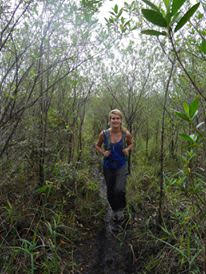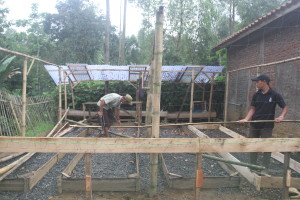As part of my internship at The Littlefire Face Project I am working on the new agroforestry project. The project aims to work with local farmers to improve The long term quality of the soil – to benefit the productivity of the farm and to help the forests. By farmers having their own nursery they can supply themselves with good quality seeds, rather than waiting to be given them by the government or having to buy lower quality seeds from the mass market.

But why plant in a nursery?
A nursery has these objectives: – To give every chance to seeds or cuttings to grow quickly and in the best conditions – To produce more plants in a small area ready to be replanted in the forest – Speeds up the process of the plants developing their root systems and aerial organs (true leaves, stems…)
Young plants are, by nature, fragile and delicate; the nursery is therefore installed in a warm, sunny place, sheltered from winds and if possible near the forest. Compost is used as it has all of the nutrients, bacteria and fungi that the plants need – making a tree nursery the best place for plants to grow.
The multiple benefits of the nursery: – Favourable conditions for growth – Provides better monitoring of disease and pests, and facilitates better care of the seedlings. The young shoots are pampered in the tree nursery so grow better and faster than if they had started to grow directly in plots in the forest! – Good quality conditions means farmers have the tools to successfully grow any trees, plants, or crops that they would like

This is only the beginning of our project, but the benefits will continue to grow. Farmers will increase the diversity of their crops, have more streams of income, and so better financial security. For nature, agroforestry is good for the climate as trees help to control carbon levels, water quality is improved, and more trees means more biodiversity!
- Marion Jourdain, Intern
